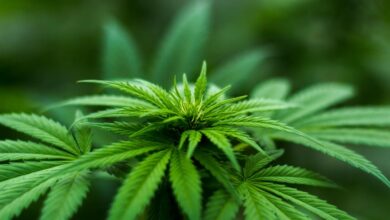Is Cbd the Same as Hemp

The distinction between CBD and hemp often confuses many consumers. Hemp encompasses the entire Cannabis sativa plant, utilized for its fibers and seeds. In contrast, CBD, or cannabidiol, is a specific compound derived from this plant, renowned for its potential therapeutic effects. Understanding these differences is crucial for anyone interested in the wellness market. What implications do these distinctions have for product quality and efficacy? The answers may surprise you.
Understanding Hemp: The Plant and Its Uses
Hemp, a versatile plant belonging to the Cannabis sativa species, has been cultivated for thousands of years for its wide-ranging applications.
Various hemp varieties thrive in diverse climates, serving numerous industrial applications. These include textiles, biodegradable plastics, and construction materials, showcasing hemp's potential as a sustainable resource.
Its adaptability and utility advocate for greater freedom in agricultural practices and environmental responsibility.
What Is CBD? Origins and Benefits
Cannabidiol, commonly known as CBD, is a naturally occurring compound found in the cannabis plant, including hemp.
Its origins trace back thousands of years, used for various therapeutic purposes.
Today, CBD benefits include potential relief from anxiety, pain, and inflammation, making it increasingly popular in wellness products.
As awareness grows, so does the desire for natural alternatives in health and well-being.
Key Differences Between CBD and Hemp
While both CBD and hemp originate from the same cannabis plant, they serve distinct purposes and possess unique characteristics.
CBD, a cannabinoid, is prized for its therapeutic effects, while hemp refers to the plant itself, often utilized for its fibers and seeds.
Understanding cannabis classification and legal regulations is essential, as these factors influence the accessibility and use of both CBD and hemp products.
The Role of Hemp in CBD Production
The production of CBD heavily relies on hemp as a primary source.
Hemp cultivation provides a rich supply of cannabinoids, essential for effective CBD extraction. This versatile plant thrives in various environments, making it a sustainable choice for growers.
With its low THC content and high CBD potential, hemp serves as a crucial element in the expanding market for natural wellness products.
Conclusion
In conclusion, while hemp and CBD are often mistakenly considered the same, they play distinct roles in the wellness landscape. Hemp serves as the versatile plant providing fibers and seeds, while CBD emerges as the star player known for its therapeutic benefits. Understanding these differences is crucial for consumers seeking to navigate the booming wellness market. As the demand for CBD skyrockets, grasping this distinction could be the golden ticket to unlocking a healthier, more informed lifestyle.





